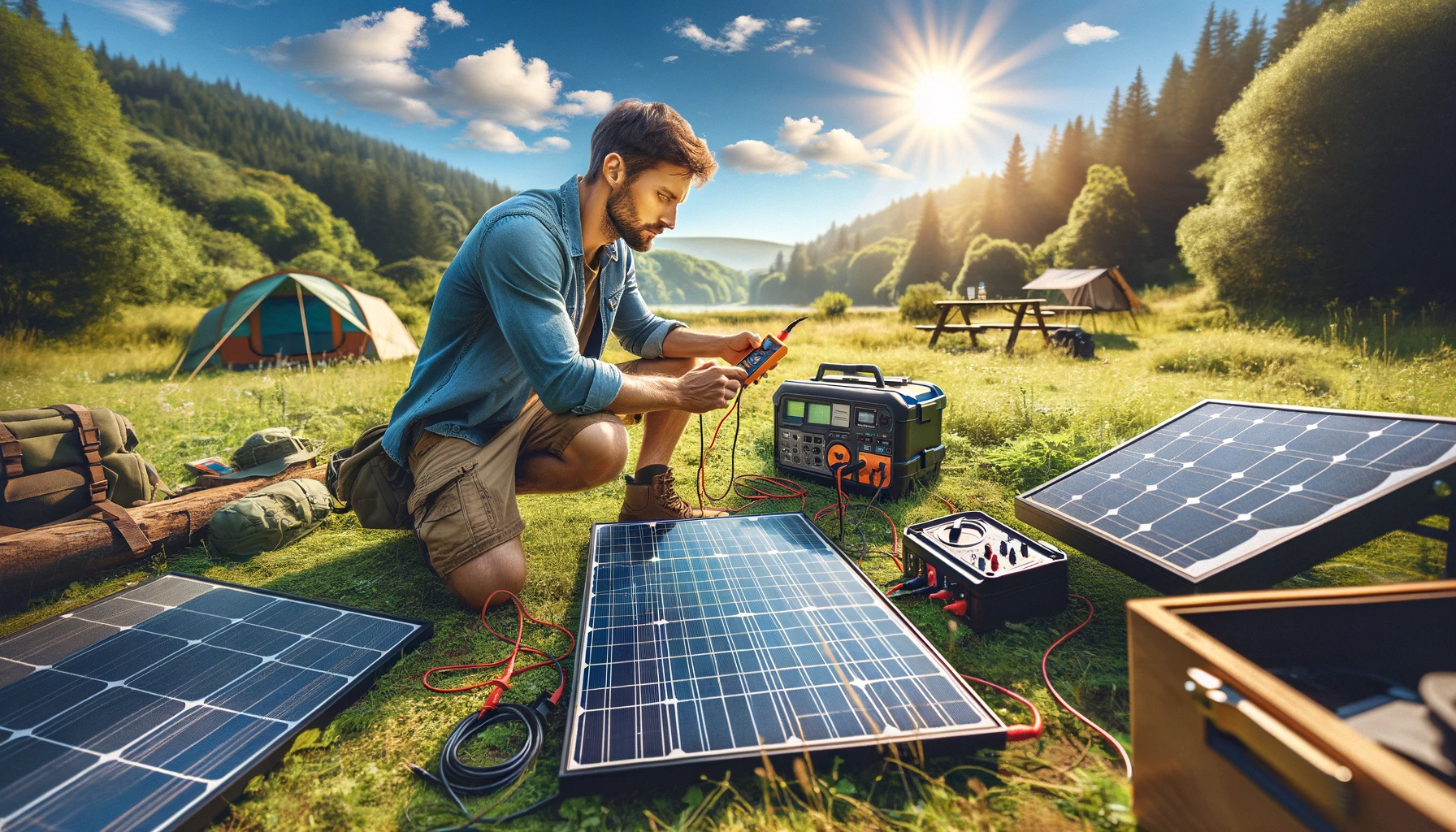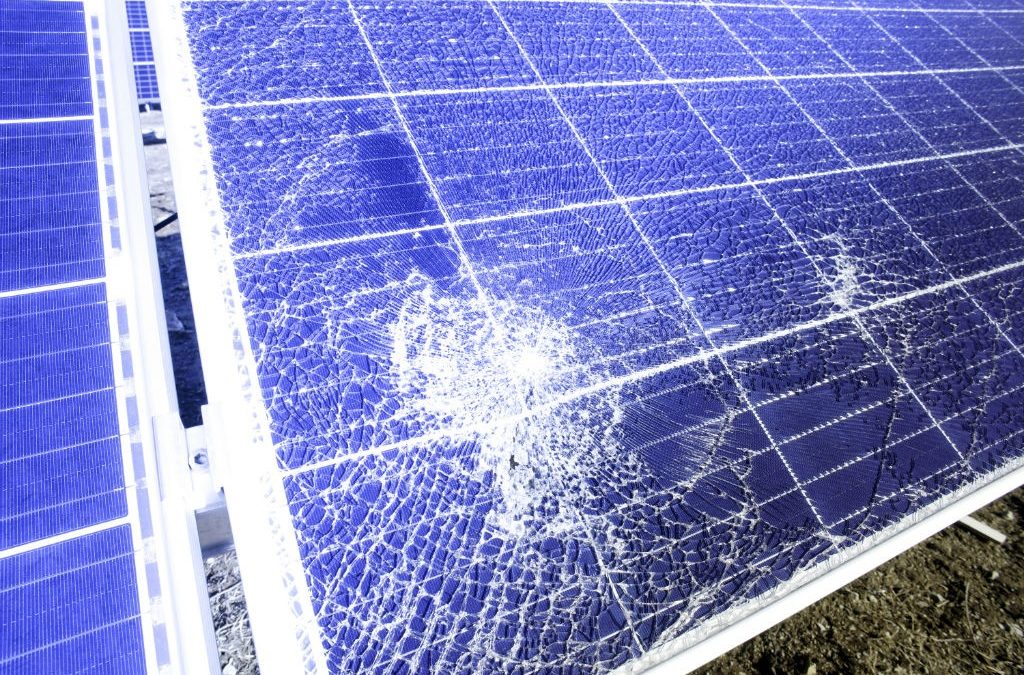Solar panel not working in rain, a perplexing phenomenon that has puzzled homeowners and solar enthusiasts alike. Join us as we delve into the intricate workings of solar panels and unravel the reasons behind their occasional performance dips during rainfall.
Delving into the heart of the matter, we’ll explore how water droplets, dirt, and electrical faults conspire to hinder solar panel efficiency. We’ll also uncover practical solutions to mitigate these effects, ensuring optimal performance even when the heavens open.
Introduction
Solar panels are devices that convert sunlight into electricity. They are made up of photovoltaic cells, which are semiconductor materials that absorb photons from sunlight and generate an electrical current. Solar panels are used to power a wide variety of applications, including homes, businesses, and vehicles.
One common misconception about solar panels is that they do not work in the rain. However, this is not true. Solar panels can still generate electricity in the rain, although their efficiency may be reduced.
How Solar Panels Work in the Rain
The efficiency of a solar panel is determined by the amount of sunlight that it can absorb. When it rains, the clouds block out the sunlight, which reduces the amount of electricity that the solar panel can generate.
Although rain doesn’t affect solar panels’ performance directly, other factors like dust accumulation and moisture-related issues can arise. These issues can be mitigated by ensuring proper maintenance and installation. For a comprehensive guide on integrating solar panels into your electrical system, refer to How to connect solar panels to the grid.
By following these guidelines, you can optimize your solar panel system’s performance, ensuring reliable power generation even in rainy conditions.
However, solar panels can still generate electricity in the rain if the clouds are thin enough. The amount of electricity that is generated will depend on the thickness of the clouds and the amount of sunlight that is able to penetrate the clouds.
Reasons for Solar Panel Malfunction in Rain: Solar Panel Not Working In Rain

Solar panels are designed to harness the sun’s energy and convert it into electricity. However, rain can pose several challenges to their performance, leading to reduced efficiency and potential malfunctions.
Impact of Water Droplets on Solar Cell Efficiency
When raindrops fall on solar panels, they form a thin layer of water on the surface. This layer can scatter and absorb sunlight, reducing the amount of light that reaches the solar cells. The scattering effect is more pronounced for larger raindrops, which can block a significant portion of the sunlight.
Dirt and Debris Accumulation on Panels
Rain can also lead to the accumulation of dirt and debris on solar panels. This accumulation can further reduce the amount of sunlight reaching the solar cells. In addition, dirt and debris can create a conductive path between the positive and negative terminals of the solar panel, causing electrical faults.
Electrical Faults Caused by Moisture, Solar panel not working in rain
Moisture can also penetrate the electrical connections of solar panels, causing corrosion and electrical faults. This can lead to a decrease in the efficiency of the solar panel or even complete failure.
Impact of Rain on Solar Panel Efficiency
Rainfall can significantly impact solar panel efficiency, leading to a reduction in power output. The extent of this reduction depends on several factors, including the intensity and duration of the rainfall, as well as the type of solar panel being used.
During rainfall, water droplets can scatter and absorb sunlight, reducing the amount of light that reaches the solar cells. This, in turn, leads to a decrease in the electrical current generated by the panel. The impact of rain on solar panel efficiency can be quantified by measuring the power output of the panel under different rainfall conditions.
Effect of Rain Intensity and Duration
The intensity and duration of rainfall can have a significant impact on solar panel efficiency. Heavier rainfall tends to scatter and absorb more sunlight, resulting in a greater reduction in power output. Similarly, longer periods of rainfall can lead to a more sustained reduction in efficiency.
For example, a study by the National Renewable Energy Laboratory (NREL) found that a 10% reduction in power output was observed during light rainfall, while a 30% reduction was observed during heavy rainfall. The study also found that the power output of solar panels recovered quickly after the rain stopped, with most panels returning to their full efficiency within a few minutes.
Performance of Different Solar Panel Types
Different types of solar panels can exhibit varying levels of efficiency in wet conditions. Monocrystalline solar panels are generally considered to be the most efficient in wet conditions, followed by polycrystalline solar panels and thin-film solar panels.
Monocrystalline solar panels are made from a single crystal of silicon, which gives them a higher efficiency than other types of solar panels. They are also less susceptible to shading and other environmental factors, making them a good choice for areas with frequent rainfall.
Methods to Improve Solar Panel Performance in Rain

Rain can impact solar panel performance, but implementing specific measures can mitigate these effects. Employing rain-resistant designs, self-cleaning mechanisms, and hydrophobic coatings enhances solar panel efficiency even during rainfall.
Rain-Resistant Solar Panel Systems
Properly designed solar panel systems can withstand rain and maintain optimal performance. Choosing panels with higher tilt angles allows water to drain effectively, reducing water accumulation and minimizing efficiency losses.
Self-Cleaning Mechanisms
Dirt and debris accumulation on solar panels can hinder performance. Self-cleaning mechanisms, such as hydrophobic coatings or brushes, help remove dirt and debris, ensuring panels remain clean and efficient.
Hydrophobic Coatings
Hydrophobic coatings repel water droplets, preventing water accumulation on the panel’s surface. This reduces light reflection and improves panel efficiency. Hydrophobic coatings also minimize corrosion and extend the lifespan of solar panels.
Maintenance and Troubleshooting

Solar panels require regular maintenance to ensure optimal performance, especially in rainy areas. Regular cleaning, inspections, and troubleshooting are crucial to maintain their efficiency and longevity.
Maintenance Schedule
In rainy areas, solar panels should be cleaned more frequently to remove dirt, debris, and bird droppings that can accumulate during rainfall. A monthly or quarterly cleaning schedule is recommended. Visual inspections should also be conducted regularly to check for any physical damage or loose connections.
Troubleshooting Techniques
If a solar panel is not functioning properly during rain, several troubleshooting techniques can be employed:
- Check for loose connections: Ensure all electrical connections are secure and not affected by moisture.
- Inspect for physical damage: Look for any cracks, broken cells, or other signs of damage on the panel.
- Monitor system performance: Use a monitoring system to track the output of the solar panels and identify any performance issues.
Best Practices
To ensure optimal solar panel performance during rainfall, consider the following best practices:
- Install panels at an optimal angle: Tilt the panels at an angle that maximizes sunlight exposure while minimizing the accumulation of rainwater.
- Use high-quality panels: Invest in solar panels that are designed to withstand harsh weather conditions and have a proven track record of reliability.
- Consider using a solar panel monitoring system: This allows for remote monitoring of the system’s performance and quick identification of any issues.
Final Conclusion
Through a comprehensive analysis of the impact of rain on solar panel efficiency, we’ve illuminated the challenges and provided actionable solutions. Remember, understanding the intricacies of solar panel performance in wet conditions empowers you to harness the sun’s energy even on rainy days.
FAQ Summary
Why do solar panels not work in the rain?
Water droplets can obstruct sunlight from reaching the solar cells, reducing their ability to generate electricity.
Can solar panels be damaged by rain?
No, solar panels are designed to withstand rain and other weather conditions. However, prolonged exposure to moisture can lead to corrosion or electrical faults.
How can I improve solar panel performance in the rain?
Tilt your panels at an optimal angle, implement self-cleaning mechanisms, and apply hydrophobic coatings to repel water droplets.


